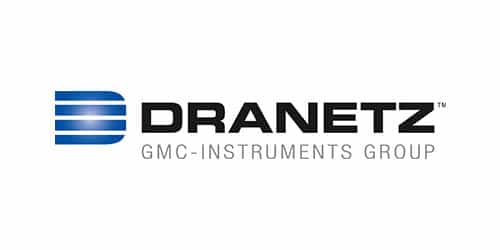This issue covers:
- Visit Seaward at Safety & Health Expo
- HSE penalises electrical safety failure
- Fire risk warning over cheap phone chargers
- Electrical safety progress for Scoltand's PRS
- Warning over sub-standard cables
Visit Seaward at Safety & Health Expo
Seaward (stand Q2002) will be using Safety & Health Expo 2014 (17-18 June, Excel, London) to showcase how its latest electrical safety testers can be integrated as part of a broader, risk-based workplace health and safety management approach.
To achieve this, Seaward’s latest generation Apollo portable appliance testers combine electrical safety testing with a comprehensive data logging capability for all workplace health and safety equipment, systems and conditions.
This means that, alongside the risk assessment, inspection and testing of portable appliances and electrical equipment, the Apollo 500 and Apollo 600 testers can create special user defined documentation to record and store all the vital information associated with work place preventative maintenance tasks, tests and inspections.
For example, user generated forms can be created for the workplace inspections and testing associated with legionnaires disease, fire alarm systems, the condition of fire extinguishers emergency lighting, ladders and access systems and all other critical safety matters.
In addition, for complete record keeping and traceability purposes, the Apollo 600 tester also incorporates a built-in digital camera to enable high quality images to be tagged against sites, locations and asset IDs as part of comprehensive workplace documentation systems.
HSE penalises electrical safety failure
The Health and Safety Executive (HSE) has highlighted the risks associated with electrical safety in a case where a North London labourer received life-threatening burn injuries in an explosion when he severed a 415-volt electrical cable, unaware it was still live, a court has heard.
The worker was removing electrical equipment from a basement wall believing it all to be safely disconnected, when the explosion happened. He suffered severe and extensive burns to his limbs, body and face, was in an induced coma in intensive care for two weeks, and in hospital for several more. He still has long-term psychological problems and persistent pain.
Following an investigation, the HSE prosecuted his employer for safety failings at Westminster Magistrates’ Court. The company was fined £10,000 and ordered to pay £9,882 in costs after admitting a breach of the Construction (Design and Management) Regulations.
After the case, HSE Inspector Stephron Baker Holmes said: “It would have been a straightforward matter to provide suitable warning notices and barriers in this case, and it is likely these simple measures would have prevented an incident like this from happening.”
Full story at press.hse.gov.uk/2014
Fire risk warning over cheap phone chargers
The national media has again highlighted the electrical safety and fire dangers associated with the online purchase of cheap phone chargers.
The Daily Mail recently reported that hundreds of thousands of such devices ‘are currently plugged into sockets in offices, children’s bedrooms, living rooms and kitchens around the country, powering up mobile phones’.
The story then went on to describe an incident in Sheffield where it has emerged that a fire which claimed victims from three generations of one family last month, including a nine-week-old baby, was probably caused by a faulty charger.
As part of its research, the Mail found multiple reports from around the country of house fires being attributed to an issue with a mobile phone battery or charging device in the past month alone.
While the chargers which are supplied with branded electronic goods are made to the highest standard and are no cause for concern, the newspaper reported that cheap, unauthorised, ‘unbranded’ chargers — the type usually bought on the internet, from market stalls or abroad, rather than from reputable shops and suppliers —can be hazardous.
It claims that 1.8 million mobile phone chargers are bought online in the UK each year, with unsafe devices often being made in China for as little as 3p each. Many of these cheap devices fail to meet requirements of the Electrical Equipment (Safety) Regulations Act 1994.
The full story is available at www.dailymail.co.uk/
Electrical safety progress for Scoltand’s PRS
Electrical Safety First’s reports improved safety in Scotland’s Private Rented Sector (PRS) has taken another step closer.
The new Housing Bill recently underwent its second stage review by the Infrastructure and Capital Investment Committee, when proposed amendments to the Bill were considered.
Bob Doris MSP tabled an amendment that would ensure mandatory, five-yearly electrical checks, by a registered electrician, of all PRS homes – and any electrical appliance supplied with them.
Margaret Burgess, the Minister for Housing and Welfare gave her support and approval to the amendment and urged the Committee to vote to include it in the Bill. The Committee’s decision to do so was unanimous.
After the vote, Bob Doris commented: “I have no doubt this amendment will help prevent fires and could save lives. Over 3,400 fires in Scottish homes arise from an electrical fault – almost 70% of all accidental fires. The provisions in this Bill are an important safeguard for the 80,000 families who live in Scotland’s PRS – a quarter of whom live with children.
“I pay credit to Electrical Safety First, who I have worked closely with, and the Scottish Association of Landlords, who have been instrumental in gaining the support of the private rented sector. Including electrical safety checks in this Bill will help ensure that people renting privately will get the protection they need.”
The Scottish Housing Bill will now undergo its third and final stage, when it will be debated by the entire Chamber. It is expected that the Bill will become law before the summer recess at the end of June, and come into effect later this year.
Warning over sub-standard cables
As part of its continuing campaign the Approved Cables Initiative (ACI) has produced a new poster to highlight the issue of sub-standard cable to the cable supply industry and wider public.
The poster can be downloaded from the ACI website and is intended to highlight a key concern within the cable supply chain that sub-standard cable isn’t always obvious, even to the trained eye. The ACI believes many cables go unchecked unless they are subjected to routine tests as part of an installation process.
The ACI advises all to be vigilant and proactive when it comes to ensuring you have made the right cable choice. Please note that downloading and displaying the poster does not imply or confer membership, certification or approval by the ACI. Details at www.aci.org.uk
Do you use Seaward PAT testing equipment? - If you think you may have a story for future e-news bulletins, please let us know by contacting us here.
















Sign up to our Newsletter.
Stay up to date with the latest industry and product news, as well as our free educational content such as webinars and our expert guides.
Close